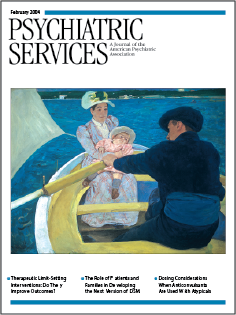Good Idea or Politically Correct Nonsense?
The well-written and seemingly balanced lead article in this month's issue may well convince many readers that there is a compelling case for including families and patients in the DSM-V revision process. Dear reader, it is politically correct nonsense. The article appeals to a host of liberal values, such as "freedom of expression," the "openness of the review process," and "the uniqueness of consumer perspectives," while ignoring the realities of the revision process.
Decisions about DSMrevisions are made by committees of mental health professionals who are chosen because of their expertise in some aspect of psychiatric diagnosis. Consumer and family organizations, such as the National Alliance for the Mentally Ill, review drafts of suggested changes to the manual and communicate any concerns to the committees. Thus patients and families already have input into the revision process. The authors of the article never explain why this involvement is not sufficient.
What unique contribution could nonprofessionals such as patients and family members make to the DSM process? According to the authors, they "could provide invaluable feedback about the phrasing of diagnostic criteria, especially concerning negative value judgments and potentially stigmatizing language in criteria and descriptions. They would likely have useful viewpoints about what it means to be 'labeled' with controversial, or potentially controversial, diagnoses." It is insulting to the mental health professionals involved in the DSM revision process, many of whom have family members with psychiatric illness or have experienced illness themselves, to suggest that they are insensitive to such issues and that they need to be educated by patients and families.
How would patient and family members be chosen? The authors see no problem: "Selecting patients and families as DSM committee members is similar to selecting professional and scientific members." Not true. The criteria for being a committee member are clear: expertise in some aspect of psychiatric diagnosis. It is not at all clear what would be the criteria for choosing patient and family members. Would it be enough to merely be interested in psychiatric diagnosis? Would patient and family members hostile to psychiatry be chosen? If not, why not?
The authors are correct: patients and families are "the premier stakeholders in the DSM process, because professional psychiatry's main role presumably is to serve persons with mental illness and their families." So too, they are the premier stakeholders in the revision of the general medical classification of diseases. That hardly argues for their participation in its revision.



